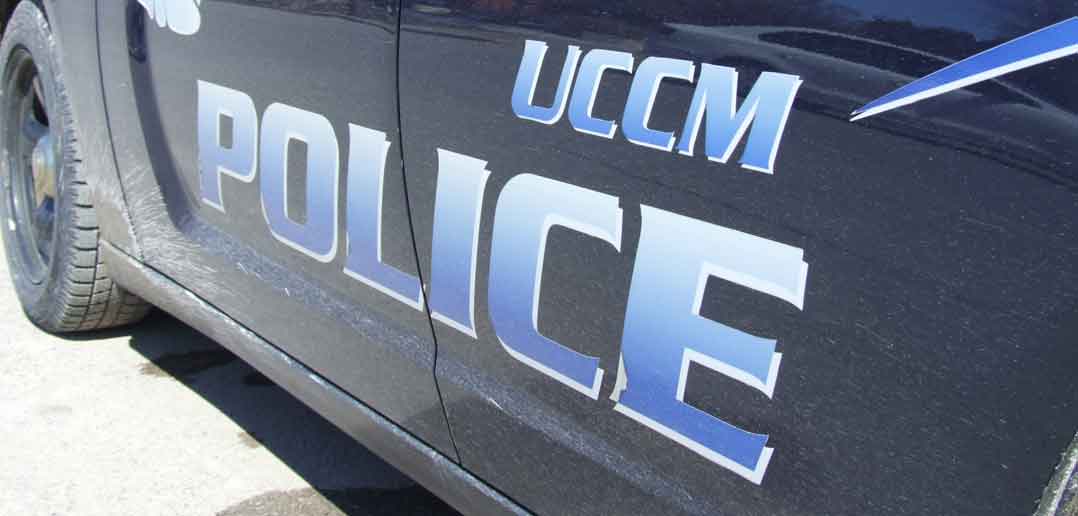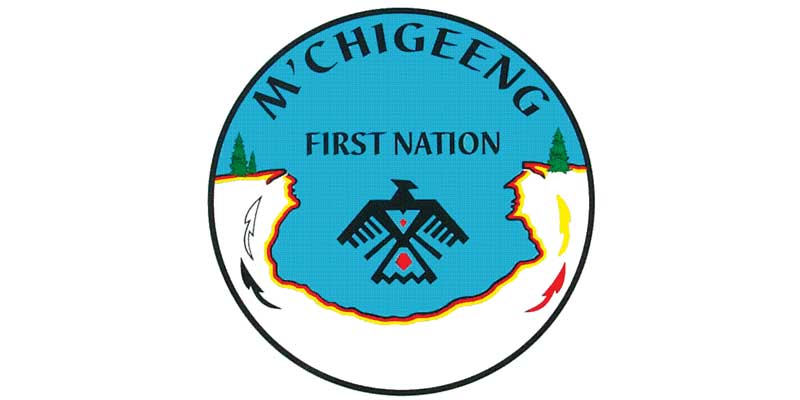UCCM Police Chief Rodney Nahwegahbow echoes national concerns
TORONTO—The First Nations Chiefs of Police Association (FNCPA) is calling on the federal and provincial governments to deem First Nations police services as an “essential service” like their provincial counterparts, enabling them to provide adequate human resources, infrastructure, operations and maintenance resources and “sufficient, predictable and sustained funding that meets the unique needs of each department.”
United Chiefs and Councils of Manitoulin (UCCM) Anishnaabe Police Services Chief of Police Rodney Nahwegahbow attended the two-day meeting in Toronto last month. He explained that the role of the FNCPA is to advocate for self-administered policing for all of Canada’s Indigenous police forces. Police Chief Gary Reid of the Wikwemikong Tribal Police also attended the national meeting.
“According to an independent research report titled ‘Set up to fail? An analysis of self-administered Indigenous police services in Canada,’ self-administered First Nations police services have been facing a number of serious challenges including limited funds for required equipment, low pay, high personnel turnover, some of the highest crime rates with the lowest number of officers, inadequate infrastructure, declining rates of Indigenous officers and a lack of stable and consistent funding,” a press release from the FNCPA states. The report, released in August 2017, concluded that “the administration of the First Nations policing program over the past quarter-century is one of benign neglect; that by doing nothing or ignoring the problem, the challenges confronting Indigenous policing would somehow manage or resolve themselves. This status of benign neglect is in keeping with a long history of promising much but delivering little to Indigenous peoples.”
“Like all the standalone police services, we want stability,” Police Chief Nahwegahbow told The Expositor.
Police Chief Nahwegahbow spoke of the overrepresentation of Indigenous people in the justice system and his belief that, with adequate funding, police services could provide a measure of prevention and an insightful way to respond to crime in the communities they serve.
The UCCM Anishnaabe police chief said the funding they receive “is really a patchwork of federal and provincial. We’re expected to deliver more on what other police forces don’t do, like bylaw enforcement.”
The Ontario Provincial Police (OPP) is considered an essential service.
He added that many of the calls his officers respond to require a heightened sense of awareness too—something they don’t teach you at police college.
In 25 years, there has been no significant changes to the way the First Nations police forces are funded, with no stability in the agreements they sign. He also noted that the UCCM’s police agreement ends March 31, 2018 and he has yet to hear back from the federal government on their renewal. “That’s the problem,” he reiterated, “the lack of communication as much as lack of will to facilitate the change that is needed to improve delivery of services.”
Police Chief Nahwegahbow said he could see big changes to First Nation overrepresentation in the justice system if only the police services were provided the funding that wold see them recognized as essential services. “The province has responded, but the federal government needs to step up,” he said.
First Nation police forces are funded 52 percent federally and 48 percent provincially. They are provincially mandated to police in the province (working with the OPP and other services), but federally mandated to provide services to First Nation communities.
“We’re put in the position where we’re trying to keep up with the Joneses but the demand is frightfully high without the means to achieve it,” Police Chief Nahwegahbow said, noting that the remote and northern police services are facing even more issues when it comes to funding.
“We do have the benefit of having backup from the Manitoulin OPP, and this arrangement works both ways, and we have good radio communications,” he added.
The UCCM Anishnaabe Police Service employs 18 sworn officers, two of which are provincially funded, as well as two special constables.
“We’d love to have more,” the police chief said of his officer complement.
“It takes education and awareness for crime prevention,” he said. “We would like to see a reduction in the number of (First Nation) incarcerations and repeat offenders.”
Police Chief Nahwegahbow reminded this newspaper of the study of two years ago which showed the staggering number of Indigenous offenders being transported from Manitoulin to the Sudbury jail—82 percent.
“Something is not hitting home,” he said of repeat offenders. “We need to get them receptive to change.”
“The government needs to do their homework and get down to brass tacks and acknowledge First Nations police as an essential service,” the police chief said. “Their perspectives need to be aligned.”
Currently, the First Nations police services are funded through a grants and contribution program.
“We’ve done a good job of masquerading (the lack of adequate funding) but it limits us,” he said. “It’s like fishing in a boat with holes in it—you’re lucky to get back to shore.”
Wikwemikong Tribal Police Chief Gary Reid, also asked to comment, indicated that he would let the FNCPA do the speaking on his behalf.





